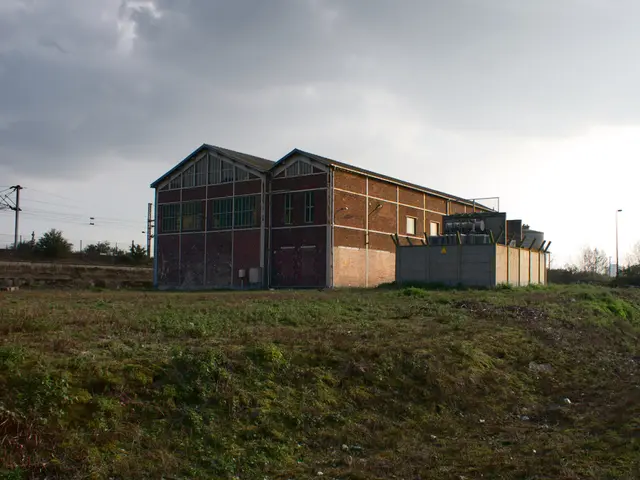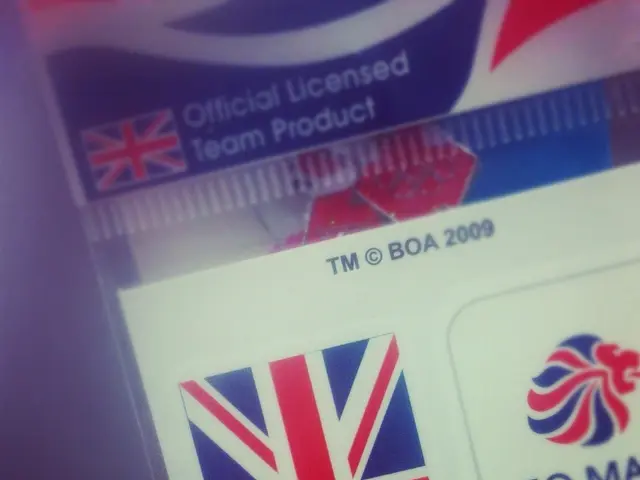Executives overseeing excessive leaks, pollution, and increasing bills at Thames Water should forgo extravagant bonuses. Instead, they should be terminated from their positions: FEARGAL SHARKEY's standpoint.
We bloody well expected an apology, but all we got was a bloody arrogant attitude.
When Sir Adrian Montague, the head honcho of Thames Water, and Chris Weston, the chief executive, stood before the Environment Select Committee, they treated the country to a sickening display of shifting blame and greed.
It's hard to fathom the sheer nerve of these two chaps, who told the MPs that their rotten-to-the-core company should get a break from almost £1 billion in fines imposed by the regulatory body Ofwat for polluting our waterways with raw sewage, wasting colossal amounts of water through leaking pipes, and providing atrocious customer service.
Why on earth should Ofwat be so soft on them? So that Thames Water can be snapped up more attractively by one private equity firm from another.
Thames Water is a disaster of a company that embodies everything wrong with privatized monopolies in Britain.
Insult
A company with such a long history of breaking the law that it now wants a "Get Out of Jail Free" card. That would be bad enough, but what makes it intolerable is the fact that the executives running this shipwreck are still awarding themselves grotesque bonuses, as if they had anything to be proud of.
It's an insult to every household forced to pay skyrocketing bills for a service that's poisoning our rivers, endangering public health, and failing to deliver the most basic of utilities.
Let's start with its astronomical debts. Thames Water, which supplies 16 million customers - almost a quarter of the UK population, from Sevenoaks in Kent to Cirencester in Gloucestershire - is sitting on a financial time bomb: an astounding £19 billion in debt.
This hasn't been racked up by the cost of building essential infrastructure or securing future water supplies. Nope, it's been built through financial chicanery, shareholder dividends, and an addiction to private equity that would make a Wall Street gambler blush. Under successive ownerships, the company has been loaded with debt while its infrastructure crumbles.
We're the ones paying for this recklessness. Whether it's through escalating bills, environmental devastation, or the looming threat of catastrophic supply failure, it's the public who have to clean up the mess - not shareholders.
Financial Engineering and Debt
Thames Water's financial woes are a result of a toxic combination of financial engineering, shareholder dividends, and private equity addiction that's hard to match.
Under various ownerships, the company has been saddled with debt while its infrastructure rots.
The executives presiding over this fiasco have offered empty promises and meaningless platitudes, but no real accountability or concrete plans for change.
Chaos and Deregulation
This isn't just a case of corporate irresponsibility - it's regulatory failure. Why hasn't Ofwat stopped this from happening? Why has the government been so weak in demanding change?
And now here comes the proposed buyout from private equity giant KKR, circling the troubled company like a shark sensing blood. Can you believe that another private equity group - itself the subject of the epic book "Barbarians At The Gate," which tells a tale of Wall Street excess, corporate demolition, and lives shattered by layoffs - should be granted the opportunity to feed on Thames Water's carcass? It's beyond insulting.
KKR will no doubt promise investment, stability, and improvements. But let's be crystal clear: its primary motive is profit. We've already seen what private ownership has done: decades of investments deferred, debt-driven dividends, and environmental disasters. There's little reason to think that another ownership change will fix the systemic rot.
Thames Water - and the entire water industry - has become the poster child for failed privatization. Nigel Farage's solution is to let it go bankrupt and for the government to administer it while arranging a sale. But personally, I think the answer is nationalization. It's hard to argue against it. The market has failed. Oversight has failed. Successive owners have failed.
Environmental Impact
Thames Water's environmental footprint is a disaster. In 2024, the firm dumped raw sewage into waterways from its aging sewage works for a jaw-dropping 300,000 hours. That's the equivalent of 12,500 days of non-stop filth being pumped into our rivers and streams.
Families strolling along towpaths, kids paddling in what should be clean rivers, fish, and wildlife enjoying wildlife habitats - all threatened so Thames Water can save a few pennies.
And what about the water leaks? The company loses more than 570 million litres a day - that's about a quarter of its entire water supply - through broken pipes and decaying mains. That's enough to fill 228 Olympic swimming pools every day - all lost before it even gets to a tap - in a country where hosepipe bans are becoming increasingly common.
Their customer service is a joke, too, ranking at the bottom of Ofwat's performance tables with customers complaining of unanswered calls, billing mistakes, and a baffling complaints process.
Executives' Bonuses
The people responsible for this terrible mess are Sir Adrian Montague and Chris Weston. Sir Adrian, who joined the company almost two years ago, has presided over this disaster with all the zeal of a man polishing the Titanic's brass. He's offered empty words and empty promises, but no real accountability or serious attempts at change.
As for Chris Weston, the man brought in to steady the ship in January last year, he has earned a pay package of up to £2.3 million, including a bonus that can reach as much as 156% of his basic salary. In fact, he grabbed a tidy bonus of £195,000 in his first three months on the job - that's more than five times the average annual salary - even as the company teetered on the brink of collapse.
Then there's the senior staff retention scheme, which offers a bonus of up to 50% for simply sticking around. Sir Adrian claims it's necessary "to protect our most precious resource, which is the senior management team." You have to wonder if water isn't the company's most precious resource. If customers want to know why their bills are rising by 35%, they'll find out why.
The Time for Change is Now
This situation isn't just morally bankrupt - it's criminally negligent. It's high time that these executives were held accountable for their actions, and it's up to us to demand change. Don't sit back and let them line their pockets while our environment and our water rights are compromised.
If you'd like to learn more about the issues surrounding Thames Water and the privatization of water utilities, I encourage you to explore further. Stand up for your rights and the future of our planet.
- The unabashed audacity of Thames Water's executives is evident as they propose a "Get Out of Jail Free" card, seeking a break from billions in fines, while rewarding themselves with inflated bonuses, despite the company's continued environmental and health threats.
- The financial turmoil at Thames Water is a product of financial engineering, excessive shareholder dividends, and unchecked private equity acquisitions, leading to a massive debt burden and deteriorating infrastructure.
- The environmental damage wrought by Thames Water, demonstrated by raw sewage dumping, water leaks, and abysmal customer service, underscores the failures of both corporate irresponsibility and regulatory bodies, making a strong case for nationalization of the industry.





